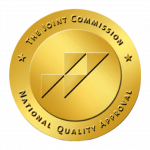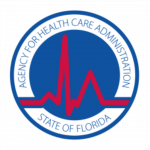Addiction treatment involves many different programs and services, ranging in severity and longevity. From detox programs, Integrated Medication-Assisted Treatment, AA or NA meetings, as well as therapy, are all essential steps in the treatment process. However, how important is therapy in addiction treatment?
For many people, counseling is a vital part of their recovery from substance abuse. Some examples of the therapies used in addiction treatment include; cognitive behavioral therapy, family counseling, and both individual and group therapy sessions.
Why You Need Therapy
Substance abuse is more than just a physical addiction to drugs or alcohol. You’re at great risk of relapse even after detox, when your body is no longer dependent. Some of the psychological and social variables that trigger relapse include:
- Stress, particularly unexpected life events
- Environmental cues, such as visiting a neighborhood
- Social media
- Specific people that you used with
These factors can lead to a strong desire to use again. Counseling helps individuals overcome cravings and learn how to cope with life’s challenges without the use of drugs or alcohol. There is a wide range of different therapy techniques used to help overcome substance abuse during detox, inpatient and outpatient treatment, as well as aftercare programs. Treatment centers, like the Harm Reduction Center, tailor each treatment plan specific to each and every client’s needs.
Individual vs. Group Therapy
When it comes to individual or group therapy in addiction treatment, group therapy is the preferred method over individual. This is because, during group therapy, many feel more supported and challenged both by their counselor, as well as their peers.
During individual therapy, you are one on one with a therapist which can be intimidating and take more time to build up trust. However, with individuals suffering from depression, bipolar disorder, or other mental health conditions, individual therapy can be more beneficial. This allows the therapist to focus on only you and your mental illness and keep the sessions completely confidential. Creating a safe environment to open up.
Cognitive Behavioral Therapy
Cognitive Behavioral Therapy (CBT) trains you to identify the moods, ideas, and events that trigger drug cravings. With the help of a therapist, you’ll learn how to avoid these triggers and discover how to replace negative thoughts and emotions with positive ones. Thus, helping you stay clean.
Although not all therapists have training in cognitive behavioral therapy, if learned, this skill can help individuals throughout their lifetime.
Dialectical Behavior Therapy
Dialectical behavior therapy (DBT) focuses on acceptance and change. Therapists began using DBT in the ‘70s to help treat people living with suicidal thoughts and intentions. However, DBT has adapted for a multitude of uses, including helping treat substance use disorders.
The focus of treatment for substance use disorders is on reducing substance use and the behaviors that lead to it. As well as promoting healthy behaviors (such as the formation of strong relationships) that assist the person to avoid using.
Family Therapy
Addiction has an impact not only on you but on your entire family. When you have solid relationships with your family and friends, you are more likely to have successful therapy. Your spouse and other family members can help you through various therapy strategies. Some of the benefits of family therapy include:
- Family members can be a powerful force for change in your life.
- Including them can make you more likely to stay in therapy.
- They can begin to heal the damage your addiction has caused in their life.
According to studies, family therapy reduces relapse rates, increases family satisfaction, and aids children of addicted parents in coping with their condition.
12-Step and Community Programs
Narcotics Anonymous (NA) is a worldwide organization of community-based meetings for persons who are recovering from drug addiction. It is a 12-step program with a defined procedure for recovering addicts, and it is modeled after Alcoholics Anonymous (AA).
It’s also a program centered on abstinence. Although many groups and individuals are more accepting now than in the past, NA is opposed to the use of maintenance therapy in principle. Methadone Anonymous is a 12-step organization that recognizes the importance of methadone and other narcotic addiction treatments in recovery.
Get Help Through Therapy in Addiction Treatment
If you or someone you know is struggling with an addiction, help is always available. Through therapy and other treatment programs, addiction can be beaten. The Harm Reduction Center offers treatment plans that are different for everyone because addiction looks different for every person. If you are ready to break free and take your life back, contact us today!














